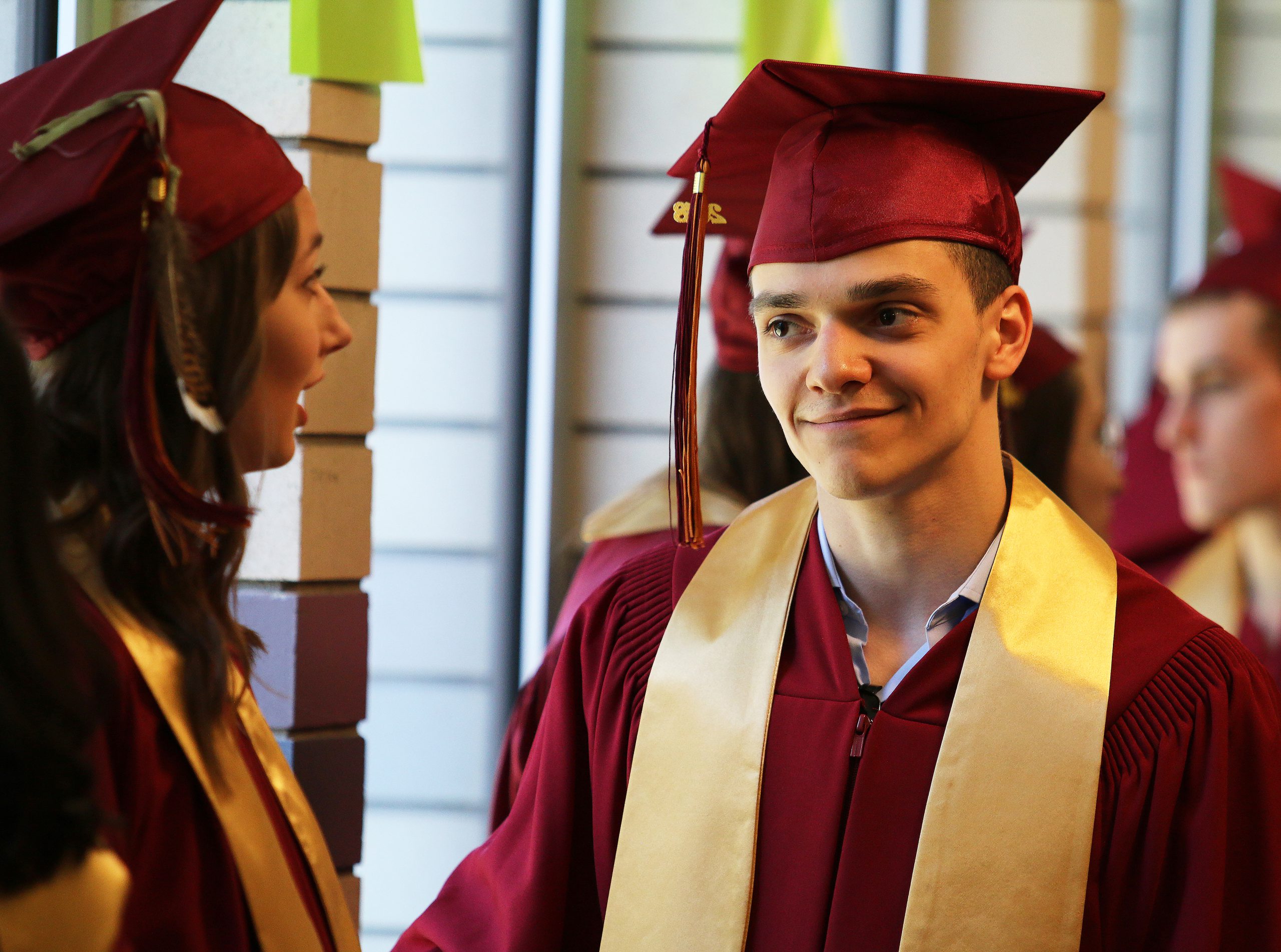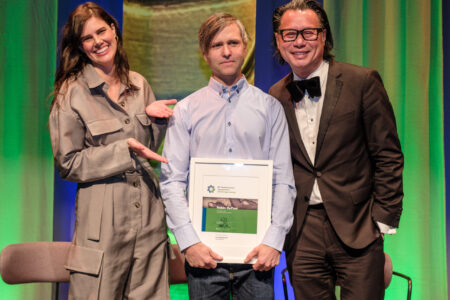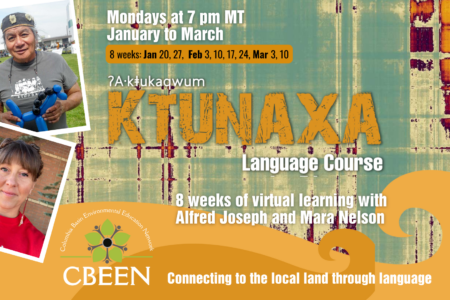Selkirk College’s Rural Pre-Medicine Program Reaches Major Milestone
Two members of Selkirk College’s Class of 2018 have taken a significant step in their pursuit of becoming doctors after receiving offers of admission from the MD Undergraduate Program at the University of British Columbia.
Svetlana Hadikin and Adib Malas graduated from the Rural Pre-Medicine (RPM) Program in April and earlier this month learned they have been accepted into medical school as part of UBC’s 2018 entering class. The Selkirk College alumni are two of 288 successful applicants chosen from a pool of more than 2,300.
“I have been dedicating a large part of my life to this,” says Malas, who moved to Castlegar from Saudi Arabia in 2015. “Ever since I was 12 years old, I knew that I wanted to pursue a medical profession. Getting accepted was very exciting and now I am looking forward to working in that environment and learning more.”
The three-year Rural Pre-Medicine Program was launched in 2014 after nearly two years of study and consultation with partners in the health care community. Geared towards addressing the shortage of doctors in rural Canada, the program provides students with a unique set of academic and non-academic programming that prepares them for application and entry to professional health programs.
As members of the second graduating RPM cohort, Hadikin and Malas are the first two program alumni to be accepted into medical school.
“They are remarkable individuals who serve as excellent models of the kinds of students the program is designed to serve,” says Dr. Jonathan Vanderhoek, the program’s interim coordinator. “The RPM Program aims to be an open doorway for dedicated individuals from rural and historically underrepresented communities in medicine. We want people to see that a career in health care is possible regardless of where you come from or how you grew up. My hope is that the success of Adib and Svetlana highlights to prospective students that living and studying rurally can be beneficial in preparing one to become a health care professional.”
In both development and execution of the RPM Program, Selkirk College has received vital support from British Columbia’s Joint Standing Committee on Rural Issues (JSC), a committee composed of representatives from the Ministry of Health, Doctors of BC and the health authorities. The JSC and medical professionals who have supported the program from its inception consider this direct acceptance and admission to UBC Medicine a significant and notable milestone for the three-year RPM Program.
“Evaluation and measures are always very important,” says Dr. Alan Ruddiman, an Oliver-based rural physician and the co-chair of the JSC. “When you get a strong measure of early success like this, it’s profoundly significant because it confirms the early intuition that we had. If we bring people who are sensitized to rural communities and the rural way of life, if we provide them with the necessary education and skills, they would probably attract the attention of medical school admissions and interview committees. This is a great validation that the Rural Pre-Medicine Program is now delivering the students to university that are appropriately ready and prepared to directly enter medical school through an alternative education pathway to a traditional undergraduate degree.”
Hadikin is born-and-raised in the Castlegar area and attended high school at Stanley Humphries Secondary School. When she was exploring options for her post-secondary pathway towards becoming a health care professional, the 21-year-old was pleased to discover the opportunity existed right at home in her community.
“It was such a great experience,” says Hadikin, who will start at UBC’s Vancouver Campus in August before moving to the Kelowna Campus for the second semester. “You don’t lose anything by going to a community college, it seems like pretty much all you do is gain. I received a lot of support from the instructors and you build a very nice close-knit group of friends because your class sizes are pretty small. I’m so happy I stuck close to home, it was very beneficial.”
One of the primary strengths of the RPM Program is the way it complements hard science courses with some less traditional pre-medicine programming. This programming includes close study of social issues related to rurality, Indigenous communities, ethics, and small business practice as well as preparation for the Medical College Admission Test (MCAT) and an emphasis on volunteer engagement in local communities. Both Hadikin and Malas agree that the unique focus provided by Selkirk College was extremely helpful in the grueling interview process involved in medical school admissions.
“The focus on the different topics a doctor will need beyond just scientific knowledge, gave me an advantage during the interviews and application process,” says Malas, who extensively researched college options all across the world before choosing to study in the West Kootenay. “The different courses and the work we did outside the classroom helped make us more aware about what is happening in our communities and in our lives. This would have strengthened us in comparison to other applicants who were focused more narrowly on the academics.”
Though both Hadikin and Malas are the first alumni to be accepted into UBC’s MD Undergraduate Program, the majority of RPM students from the first two graduating cohorts have continued working towards completion of their Bachelor degrees and interviewing for professional health care programs.
Learn more about the Selkirk College Rural Pre-Medicine Program at selkirk.ca/rural-pre-medicine.
























